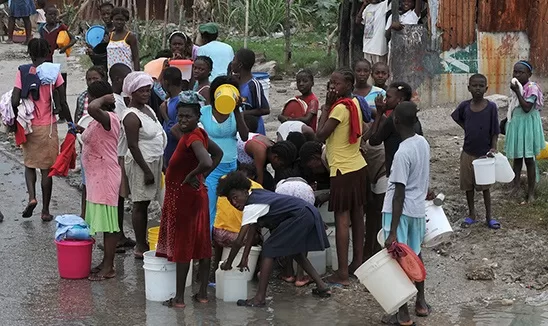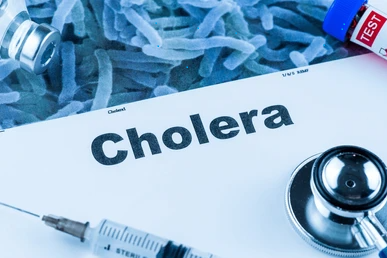Lagos State has confirmed 17 cholera cases and 15 deaths due to the disease. It was after 350 suspected cases were reported in 29 wards across the state.
The situation is becoming increasingly dire as health officials work tirelessly to contain the outbreak and prevent the further spread of the deadly disease.
In a statement released on Saturday, the Lagos State Ministry of Health confirmed the cases. The statement said that the affected wards are located in six local government areas:
Read Also: The autopsy report ultimately indicates a potential reason for Mohbad’s death.
The affected wards are located in six local government areas, including Ikeja, Surulere, Eti-Osa, Alimosho, Amuwo-Odofin, and Ikorodu.
Raising concerns about the potential spread of the virus across the state.
The Ministry of Health also urged residents in these areas to take the necessary precautions and follow all recommended health guidelines to prevent further transmission of the virus.
👉Surulere
👉Mushin.
👉Oshodi-Isolo
👉Ikeja
👉Amuwo Odofin
👉Apapa
The state government has deployed rapid response teams to the affected areas to provide treatment and prevent further spread of the disease.
The Commissioner for Health, Prof. Akin Abayomi, urged residents to take preventive measures against cholera, such as: boiling water before drinking,
washing hands regularly with soap and water, avoiding street food vendors, and seeking medical attention immediately if experiencing symptoms such as severe diarrhea and vomiting.
👉Drinking only treated or boiled water
👉Washing hands with soap and water regularly
👉Avoiding raw or undercooked seafood
👉Eating only properly cooked food
The government also advised residents to report any suspected cases of cholera to the nearest health facility Additionally,
the government emphasized the importance of early detection and prompt reporting of any potential cholera cases to prevent further spread of the disease within the community.
Cholera is a bacterial infection that causes severe, watery diarrhea and can lead to dehydration and even death if not addressed.
Typically, tainted food or water is how it spreads.
In many developing countries, especially those with poor sanitation and limited access to clean drinking water, cholera is a serious public health risk.



